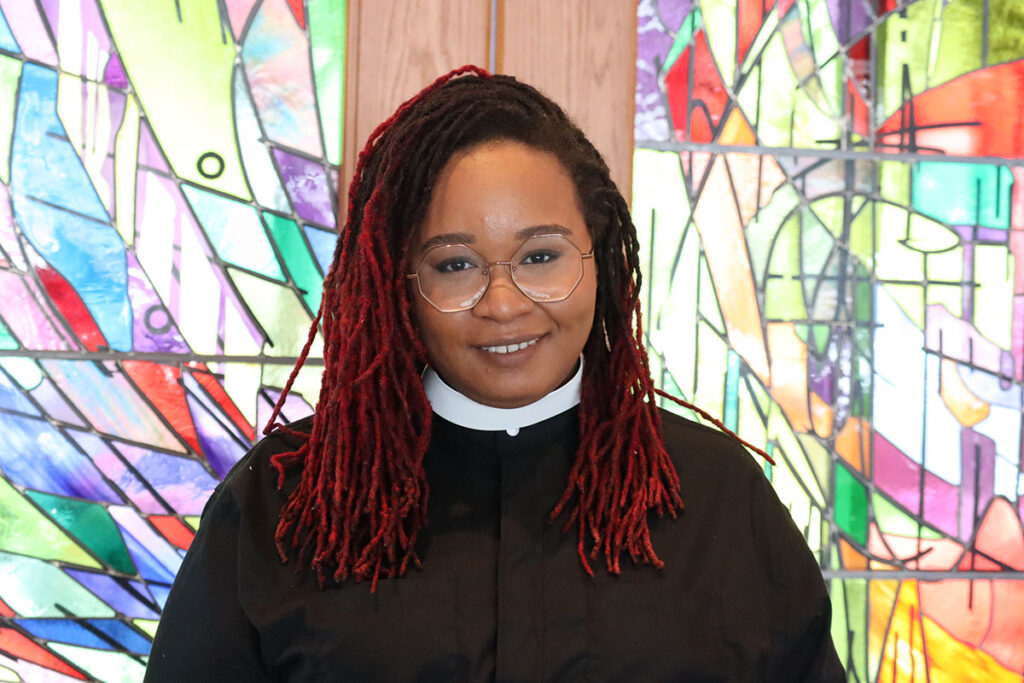MDiv Student Sharei Green on Scholarships and the Promise of the Future

“If it weren’t for scholarships,” MDiv student Sharei Green says, “I wouldn’t be here.” Green recalls the tens of thousands of dollars of private debt that she accrued as an undergraduate, her hard-working family background, and her need to be self-sufficient into adulthood all as things she assumed were obstacles to attending seminary.
Still, God placed in her heart two desires:
- To attend seminary
- To create spaces of rest, healing, and Sabbath for Black women
“As soon as the idea [to create these spaces] settled into my spirit, God aligned everything to make it happen,” Green says.
It doesn’t mean it wasn’t a shock. In fact, when she got the call that she had been accepted to the Lutheran School of Theology at Chicago’s MDiv program with a full tuition scholarship, she was so overtaken with emotion that she had to pull over the car she was driving.
It wasn’t that it had been a long road; but Green is the first to admit—it has been winding. For Green, the path to LSTC began overseas. In 2015, Green embarked on a Peace Not Walls trip, an ELCA-directed campaign working for justice and peace in Palestine and Israel. On the trip, Green, who is an alum of Luther College in Decorah, IA, found herself in conversation with LSTC students. The conversation turned to the role of religion in educational environments.
“I was talking about how undergrad religion classes have been a big part of my faith journey,” Green says. “And I was like, ‘It would be so cool to go to seminary…but not be a pastor.’” She expected polite nods, or perhaps agreement. Instead, her companions surprised her. “They said, ‘Well, you can do that,’” Green remembers. “So, after that, it kind of put the thought [about going to seminary] in my head.”
The journey from Peace Not Walls to LSTC was still anything but a straight line. Upon her return to Chicago, Green visited LSTC to attend a talk by LSTC President James Nieman. After the talk, Green went up to President Nieman and expressed her interest in attending LSTC. To her surprise, he invited her to attend a Seminary Sampler, which he was heading to directly after his talk. Green’s experience at Seminary Sampler proved to be a formational experience; Green especially recalls the benefits of being able to sit in on classes and talk with professors. And yet—she still wasn’t exactly sure how to make seminary work in her life.
In the midst of deciding on her next steps, Green got a job offer at Churchwide with Lutheran Disaster Response. The job was rewarding; Green even got to work with the pastor of her Church. One day, her pastor let her know that there was a group of women on site who were writing a book on women of color’s experiences in the church and encouraged Green to go meet them. “When I went in that room, those ladies laid hands on me and prayed on me and I left knowing I was going to be a pastor,” Green says. “I was just like: ‘I ain’t signed up for this!’” But she heard the call.
In 2019, Green made the jump, leaving her job and, in February of 2020, starting as a full-time MDiv student at LSTC. Today, Green is working towards her calling. In 2022, she took 11 women of color and two facilitators to upstate New York for a four-day, three-night retreat to call into being the healing that she sees for her community.
For Green, this is just the beginning. And to other students who have their own callings and who also need support of the community to bring them into being, she has some advice: “Advocate for yourself. Fight for what you need.” The possibilities, as she has proven, are limitless.